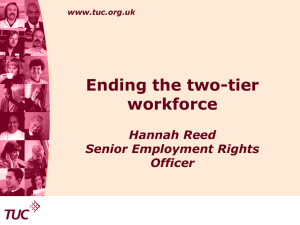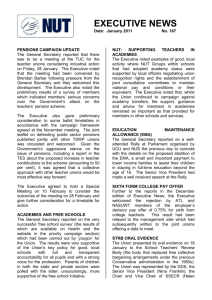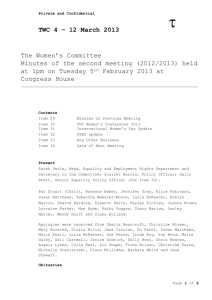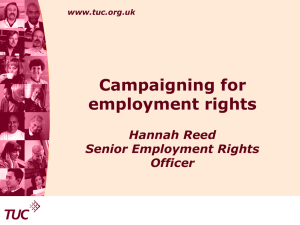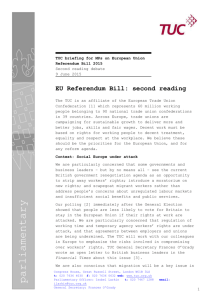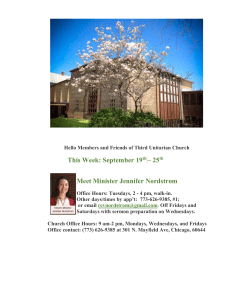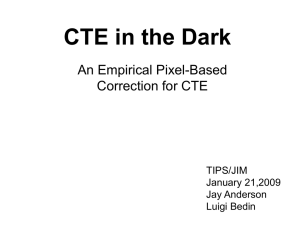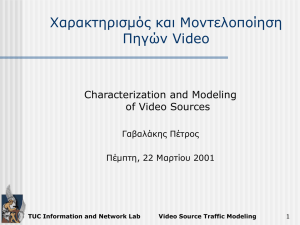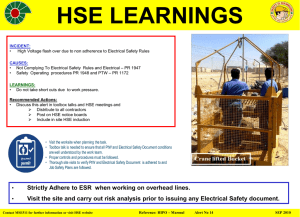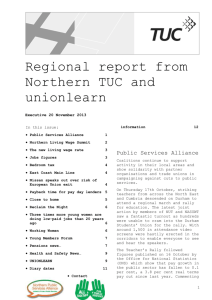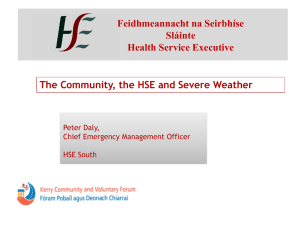Hugh Robertson - The Institute of Employment Rights
advertisement
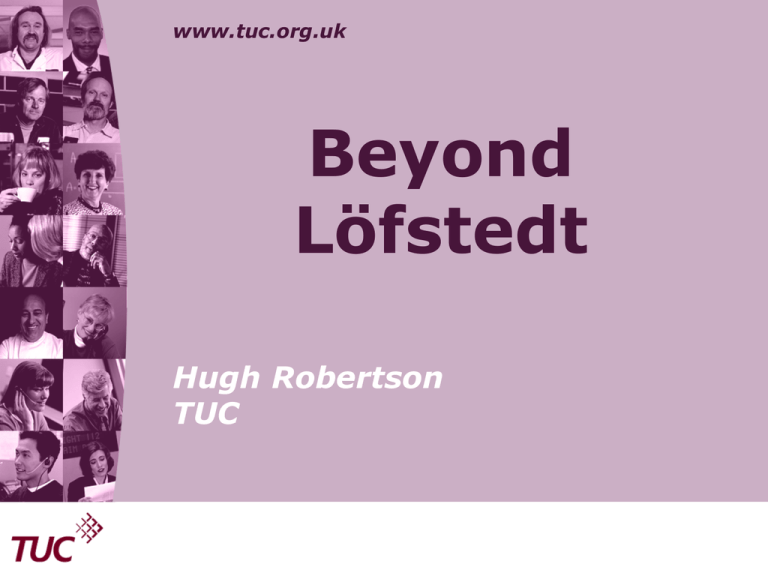
www.tuc.org.uk Beyond Löfstedt Hugh Robertson TUC www.tuc.org.uk TUC view on Lofstedt • Must separate the Government hype over the report from the actual report. • Most of it was positive, sensible and evidence based. • Reinforced the union view that health and safety is not a burden. • Mainly what HSE already doing. • We do not oppose simplification. We do oppose anything that reduces protection. • Some disagreements over some detail, especially over self employed • Real issue is the remit www.tuc.org.uk Lofstedt - Remit “The review will consider the opportunities for reducing the burden of health and safety legislation on UK businesses whilst maintaining the progress made in improving health and safety outcomes.” • Like the Young report, it was limited to looking at the “burden” of regulation • Like Young, it found that the current framework was fit for purpose and there was no evidence of excessive regulation, or of a compensation culture. www.tuc.org.uk Government view Despite that the Government still thinks that: • There is excessive regulation • There is excessive enforcement • Business is over-compliant – often due to consultants • There is a compensation culture that makes companies risk-averse. www.tuc.org.uk Are we over regulated? Complex, unnecessary or impractical regulations are, at best useless. However • HSE simplification exercise – with support from unions and employers • 46% fewer regulations now that there were 35 years ago. • 57% reduction in number of forms used • Average business spends 20 hours and just over £350 a year on risk assessment (BIS) www.tuc.org.uk Levels of enforcement • HSE prosecutions have fallen from 1,986 in 2001/02 to 1,026 in 2009/10 • Average fine for H&S cases - £14,614 for HSE cases and £5,607 for LA cases • FOD made 23,000 inspections in 2008/09 - for 884,000 premises – this is likely to fall further. www.tuc.org.uk Inspection policy Published “Good Health and Safety, Good for Everyone” in March 2011 Inspections to be reduced further by the cuts. No proactive inspections of “low risk premises” – this will reduce proactive inspections by a third. “Low risk” is a myth based on a believe that only safety counts. www.tuc.org.uk Importance of inspections Possibility of a visit is an important factor in ensuring compliance. If a visit can only happen after an injury it will be counter-productive. Most employers do not think it will happen to them. Will also lead to under-reporting TUC research shows that 61% of employers make improvements because of the possibility of a visit. Visits are not necessarily seen as negative by employers. Over 90% found HSE a “helpful” organisation When an enforcement notice is served 70% go beyond just the minimum required for compliance. www.tuc.org.uk Over-compliance? Over half of businesses have not done a basic risk assessment Reliance on consultants will increase as inspection numbers go down and access to information folds. However is it a major issue? Should we be promoting simply compliance or best practice and continual improvement? www.tuc.org.uk Compensation culture Personal Injury claims by workers have fallen by 64% in 10 years. Only one in ten workers entitled to claim does so. Government making it harder (Legal aid bill) Yet compensation claims are an important driver for safety – force insurers to act and bring issues to notice of employers. www.tuc.org.uk What this means in practice HSE stated “the expected 'lower level of enforcement' would mean 'a consequent decrease in health and safety standards throughout Great Britain, with ensuing costs to society.” Biggest effect will be in occupational health www.tuc.org.uk Occupational health 171 workers killed at work last year 8,000 died from cancer and 4,000 from COPD 70% of work related sickness absence due to MSDs and stress Occupational health is by far the biggest issue Yet – not mentioned once in Young review, “Good Health and Safety, Good for Everyone” or the government response to Lofstedt. www.tuc.org.uk Why emphasis on safety? Many occupational diseases only manifest after 10-40 years Injuries and immediate fatalities higher profile Policy determined by public perception Politicians are mainly concerned about what happens “on their watch” At times of economic pressure, priority is things that go bang and immediate fatalities. Will have huge consequences for the future of health and safety. www.tuc.org.uk Role of unions? Less inspectors and inspections H&S reps cannot replace inspectors but can be “eyes and ears” However Reductions in safety representatives ability to enforce rights to training and protect from victimisation. Assault on “facility time” Other priorities in public sector (pensions and cuts) Less support from HSE. www.tuc.org.uk Summary Regulation must be simple, relevant and effective to work Must be enforced. Should aim at best practice Business needs good support and guidance Resources should be targeted at what will have most effect Role of H&S reps needs enhanced Health and safety too important to be left to politicians.

